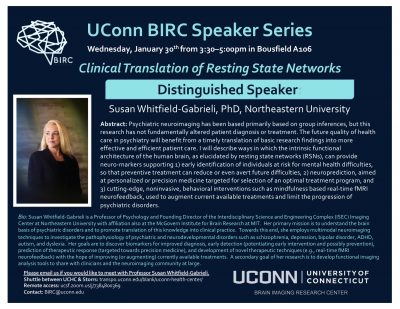Issue Date
December 19, 2018
Background
Since the opening of the University of Connecticut (UConn) Brain Imaging Research Center (BIRC) in June 2015, there has been an increase and diversification of user-base, neuroimaging-related extramural grants, and neuroimaging expertise of students and faculty. However, there is still room for greater utilization of BIRC, which presents opportunities for BIRC to offer the resources to perform high-profile and neuroimaging-intensive research that other fully occupied imaging centers cannot offer.
Objective
The BIRC Trailblazer Award was created to allow research teams to perform cutting-edge research and/or perform research that will benefit the BIRC community at-large. The objective of the 2019 BIRC Trailblazer Award is to fund: (1) high-risk high-reward projects with exceptional innovation that lead to raising the visibility of UConn, College of Liberal Arts and Sciences (CLAS) and BIRC; and/or (2) projects that will benefit the BIRC community at-large (e.g. methods development). The project is intended to lead to high-profile peer-review publications, release of a public database, and/or work that is cited and utilized by large-number of UConn researchers in their grants and manuscripts. The project should also lead to large-scale and high-profile extramural grant applications shortly after the end of the funding period.
